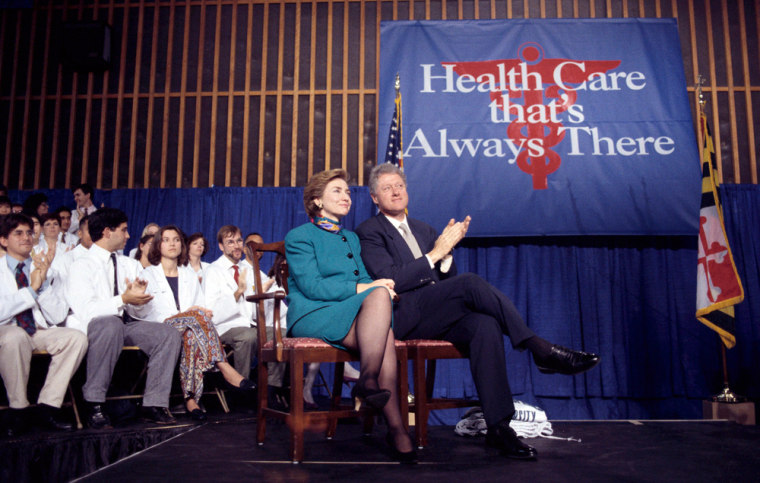Blame it on Bubba. I’m talking about the disgraceful state of health care in America, with so many uninsured and so much money spent on care that is often inferior to what citizens of many other countries get for much less.
Bill Clinton cares a lot about health, and recently he has achieved some spectacular results. Last week he brokered an agreement with the beverage industry to remove sugared drinks from schools, a potential turning point in the fight against childhood obesity. His foundation has brought down the prices for anti-viral drugs in poor countries, allowing hundreds of thousands, perhaps one day millions of people, to survive who would have died from AIDS.
Back in 1992 when Clinton first won the presidency, American health care reform dominated the campaign. When Clinton took office, the Republicans were ready to compromise. Some moderate Republican senators even told me they were willing to discuss extending Medicare, which covers everyone 65 and over, to the entire population. Presto! We would have had universal health insurance. And even if that concept would not have flown, the Republicans were open to a compromise.
But Clinton refused to accept it. Instead he allowed Hillary Clinton to set up one of the great farcical bureaucratic efforts of all time — her commission to reform health care. As the months dragged on, it became the shooting gallery where every one of the myriad special interests in health care could fire off repeated rounds, killing any chance of reform.
Clinton’s missed opportunity was the third time since World War II that universal health care was on the table with a serious desire for results. Harry Truman wanted it. So did Lyndon Johnson. Truman got nothing and Johnson, with his masterful control of Congress, managed to win Medicare for the elderly and Medicaid for the poor, but universal coverage escaped him. For Truman and Johnson, the American Medical Association led the charge against what they saw as “socialized medicine.”
Thus America remains the only industrialized country where financing health is not considered a government function like building highways and supporting national defense. We have a right to clean water piped to our homes, but not access to medical care.
Why repeat this history? Because health care reform will become a big deal again soon. Right now the Iraq war and gas prices are dominating the political discussion, but lack of affordable heath care impacts so many Americans that it must rise to the top of the agenda again.
Experts who care deeply about this issue tell me there is no chance for a “single payer” system now — no extension of Medicare to everyone. The AMA curiously would not make up the major opposition this time. Many doctors have seen their incomes level off and their professional lives made miserable by private insurance companies, and they actually prefer to treat Medicare patients these days. It is the private insurers who make up the post powerful lobby now.
It is well worth pointing out, as Paul Krugman recently did in his New York Times column, that private insurers like Aetna pay 80 cents of every dollar for health care while the rest goes for overhead including executive salaries and the lobbying efforts in Congress. Medicare on the other hand pays 98 percent of what it collects for health care — an overhead of only 2 percent.
As I pointed out recently, another government program, the Veteran’s Administration, is offering some of the best medicine around with the same low overhead.
And a recent study in the Journal of the American Medical Association found that middle-aged Americans are on average a lot sicker than their British counterparts. With their National Health Service the Brits spend on average $2,164 a year for health care while we pay $5,274. The authors of the study say the health care financing systems do not account entirely for the difference in outcomes. But it is clear National Health is not making the British sicker — quite the opposite.
Call me old-fashioned (or many other things), but I believe the government can do some things well, and financing health care is one them. That might be worth remembering if someone like Clinton has another shot at universal reform.
